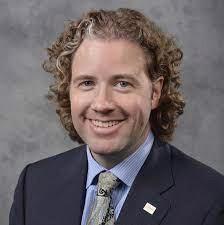Alltech Sustainability Report
|
11/05/2021 |
|
 Alltech believes that agriculture has the greatest potential not only to meet global demand but to positively impact the future of our planet. The Alltech vision of Working Together for a Planet of PlentyTM is reflected throughout the pages of the newly released 2020 Alltech Sustainability Report. Alltech believes that agriculture has the greatest potential not only to meet global demand but to positively impact the future of our planet. The Alltech vision of Working Together for a Planet of PlentyTM is reflected throughout the pages of the newly released 2020 Alltech Sustainability Report.
“This dawning of a new age in agri-food will require us to continue working together across geographies and industries to create a more sustainable future,” said Dr. Mark Lyons, president and CEO of Alltech. “Agriculture has made extraordinary strides in sustainable production, but the next few decades will be crucial. Our sustainability report demonstrates our ongoing commitment to providing smarter, more sustainable solutions for producers while harnessing the power of collaboration and human ingenuity to create a more promising future.”
|

Dr. Mark Lyons |
While Alltech’s Planet of Plenty vision looks toward the future, it’s also rooted in long-held values. In 1989, Alltech founder Dr. Pearse Lyons committed to a guiding ACE principle, requiring that the company’s endeavors prioritize the safety and well-being of the Animal, the Consumer and the Environment.
In 2019, Alltech became a signatory of the United Nations Global Compact (UNGC) and committed to nine of the 17 U.N. Sustainable Development Goals (SDGs), including zero hunger, good health and well-being, quality education, gender equality, decent work and economic growth, climate action, life below the water, life on land and partnerships for the goals. Throughout the 2020 Alltech Sustainability Report, each of the company’s contributions is accompanied by the corresponding UNGC principles and SDG goals.
|
|
The report details how Alltech’s Planet of Plenty Partnerships are creating opportunities for advancing the implementation of science-led sustainable practices that improve profitability and animal and environmental welfare.
“This year has affirmed the vital importance of collaboration, trusting our scientific experts and welcoming diverse perspectives,” said Dr. Mark Lyons. “Together, instead of leaving a footprint, we can leave a legacy.”
|

|
|
|